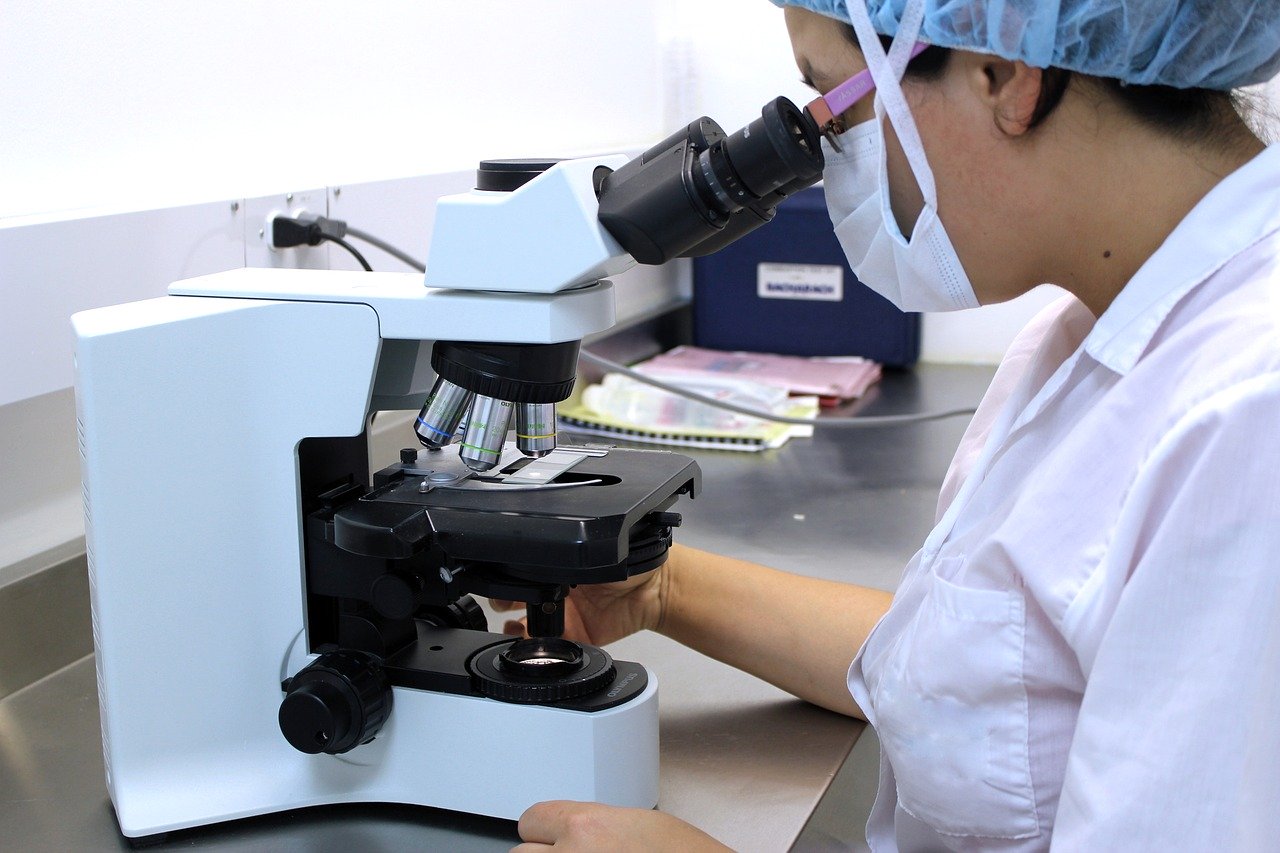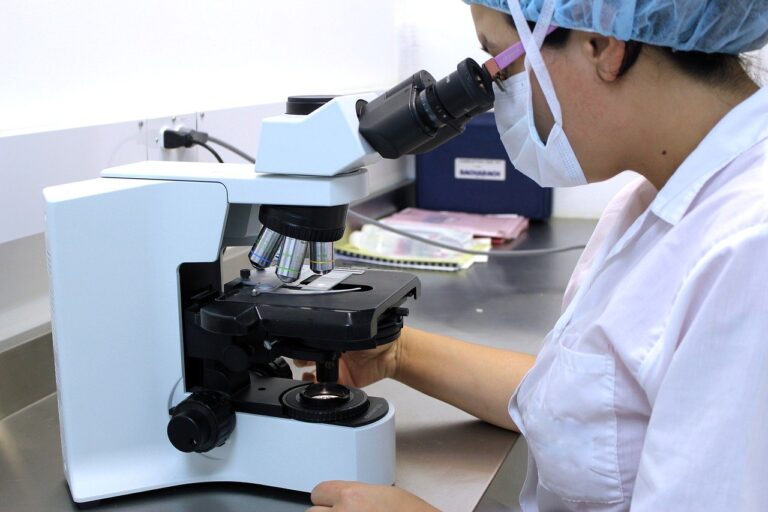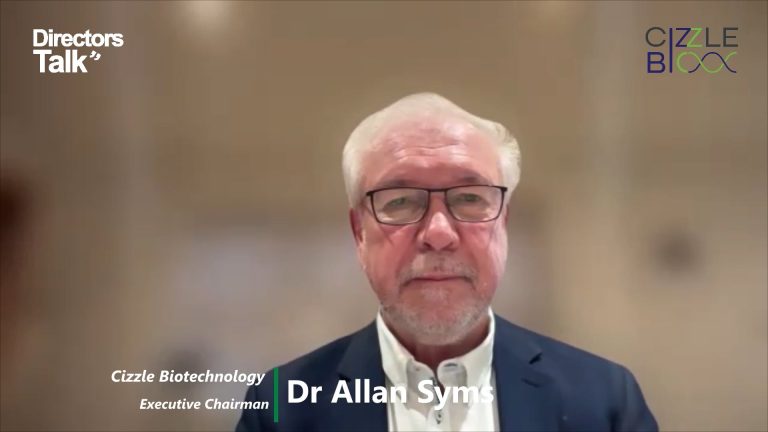Cizzle Biotechnology plc (LON:CIZ) Executive Chairman Allan Syms caught up with DirectorsTalk for an exclusive interview to discuss what the company does, their patent portfolio, how they will use the funds raised and how they view the future for the company.
Q1: First off, congratulations on the listing on the main markets. Could you explain for us a little more about what Cizzle Biotechnology does?
A1: It is actually a fantastic opportunity and I’m really really pleased to be able to not only tell you about it, but the fact we’ve actually been able to get this onto the market today.
My background was very much in the cancer research field and I spent many years in that area and one of the key things that always used to frustrate me as a researcher is the fact that actually many people don’t need to die of cancer if you can detect the cancer early enough. There are many statistics on this but the bottom line is, is if you detect cancer very early, you’ve got a very good chance of surviving it because you can get early intervention with treatment. If you don’t catch it until much later, then your prognosis is not very good.
The trouble with lung cancer is it’s something that I call a silent killer, which is actually you don’t know in the early days if you have a lung cancer because you don’t have the symptoms, it’s a disease inside the body you can’t see. So, it’s one of those very difficult situations where one of the most common cancers in the world is something that we don’t have a simple and easy early diagnostic test for.
So, we are all about fixing that problem and the way that it does it is actually to look for a protein in your blood that actually comes or is associated with the creation of cancer in your body. So, that is what we’ve actually done, we’ve actually found a marker, or what’s called a biomarker, that allows you to detect cancer very early on by a simple and a small amount of blood.
So, it’s really very exciting because there is no real solution to this out there.
Q2: Do you have patents in place for this technology?
A2: We do, it’s a very extensive patent portfolio on it but I think what I’d like to say is where the parents actually give us the benefit of what it is that we’re actually doing and extend the problem of not being able to detect lung cancer early. That is that how do we do it today?
The way in which we do that today is in a way by accident, in other words, if you’ve got a lung infection or you’ve had some sort of injury and you’ve turned up at the hospital and somebody has done an x-ray and thinks, well, there’s something that looks a bit strange there, we’ll put you down for a CT scan and then the CT scan finds a nodule and then the nodule could be cancer. So, there’s an initial diagnosis of you might have a lung cancer.
The problem with that is it gets it wrong 90% of the time and so therefore this person now who may not have cancer, has to go into what’s called the cancer care pathway, have more CT scans, possibly some sort of invasive surgery to have a biopsy to actually look at the cells. When, if you had the ability to do a simple blood test that could rule out those people, you would save a lot of people having to go through that, let alone the stress that’s created to the person, but think about the resources and the time taken actually in hospital and the cost of doing all these scans.
So, returning to your patent question is we’ve got patents on how you do that test and that’s the key part of the core technology the company owns.
Q3: Now the company’s completed placing of 22 million new ordinary shares at 10p per share, and that’s to raise gross proceeds of £2.2 million. What do you plan on doing with the funds that you’ve raised?
A3: The original research was done at York University and Professor Coverley’s research team there and so it’s largely been a test that’s been in development. The results of those early investigations have been incredibly positive, but as with every other in vitro medical device or diagnostic test, you have to put that through a process of getting it passed what are known as the regulators to have the product certified, that it is safe to use and it’s a test that actually gives you the results you want. So, in Europe, that’d be through the European Medicines Agency, in the United States through the Food and Drug Administration, FDA.
We will use the funds to develop the test in a form that could be tested by the FDA and tested by the EMA to get to a C mark or since post-Brexit, the equivalent of that in the UK, so that we actually have a test that is certified for use within a hospital laboratory.
So, most of the money is going to develop the reagents, develop the manufacturing processes and take the kits through this testing regime that we will do and get the product set aside.
Q4: How do you view the future then for Cizzle Biotechnology?
A4: In many ways, and it’s a rather unfortunate situation, there’s never been a better time for people to be considering investing into diagnostic companies and the reason obviously is COVID. In many ways diagnostic companies were sort of seen as a bit of a poor cousin to therapeutic area but I think we all now know that because of COVID that there has been this huge demand for new and better ways to detect viruses and there are also huge and good reasons why you want to be able to detect things such as cancer.
So, there is a large interest right now in diagnostic businesses and how diagnostic businesses can help therapeutic businesses working together to not only detect a disease but then actually to be able to help those patients get the proper treatment.
I think we are now in a new era of, if you like, biotechnology and so from my viewpoint, not only now, but going forward is there’s only going to be a greater interest in having good diagnostic companies in the market.








































